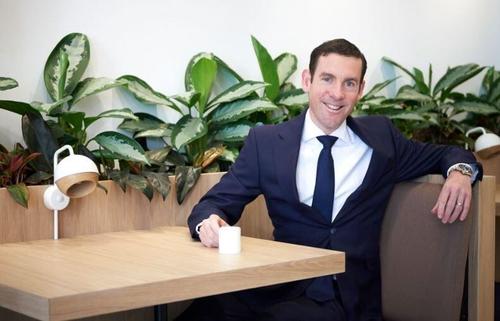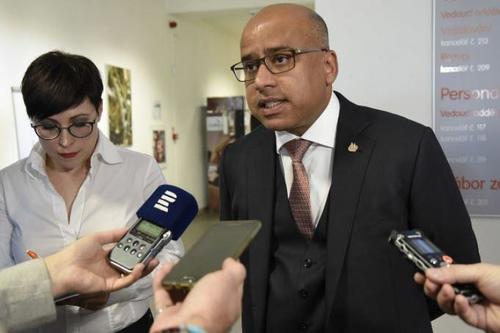$7 Billion Fund Unravels As “Emperor Of Supply-Chain Finance” Has No Clothes
Less than a month ago, Lex Greensill was heralded as “the king of supply-chain finance”…
London-based Greensill Capital was heralded for apparently revamping the humdrum business of supply-chain finance, a kind of lending that speeds up payments between companies. Bloomberg reported in early Feb that the 44-year-old financier says the firm provided $150 billion to businesses and customers in 175 countries last year.
However, in what is now a prophetic warnings, Bloomberg noted that some view him as an aggressive risk taker who’s often pushing the boundaries in an area of finance less regulated than traditional banking, noting that Greensill Capital has been embroiled in scandals involving some of the biggest names in global finance.
Loans it helped to arrange were the focus of conflict-of-interest accusations last year involving Credit Suisse Group AG and Masayoshi Son’s SoftBank Group Corp, and the firm was at the center of a 2018 crisis at Swiss asset manager GAM Holding AG that brought down a star trader.
“We’re doing things a little different to what’s been done before, and that’s always going to kind of garner attention and commentary,” Greensill says from his home in northwest England.
“I recognize by doing that, it does from time to time make us a target.”
Fast forward three weeks to this morning and the ‘king of supply chain finance’ appears to have no clothes…
Bloomberg reported this morning that Greensill’s empire was unraveling fast as two major backers had abandoned the firm:
Credit Suisse Group AG on Monday froze a group of supply-chain-finance funds that it ran with help of the financier.
The funds combined held about $10 billion in assets, most of it in Greensill-sourced securities.
Separately, SoftBank Group Corp.’s Vision Fund has substantially written down its $1.5 billion holding in Greensill Capital, and is considering dropping the valuation to close to zero, according to people familiar with the matter.
The writedown occurred at the end of last year, said one person.
Specifically, a part of the funds is “currently subject to considerable uncertainties with respect to their accurate valuation,” according to a notice the bank sent to investors.
“Greensill acknowledges the decision by Credit Suisse to temporarily gate the two Supply Chain Finance Funds dealing in Greensill-sourced assets,” a spokesperson for the firm said by email.
“We remain in advanced talks with potential outside investors in our company and hope to be able to update further on that process imminently.”
The Wall Street Journal reported Sunday that the bank was concerned about Greensill’s exposure to a single client, U.K.-based steel magnate Sanjeev Gupta, according to people familiar with the matter.
Germany’s finance watchdog is examining whether a Bremen-based bank Greensill bought in 2014 was tied too closely to Gupta’s GFG Alliance Ltd., according to people familiar with the matter who asked not to be identified because they weren’t authorized to talk.
Loans to Gupta made up about two-thirds of the bank’s assets in 2019.
Greensill won’t say whether the Federal Financial Supervisory Authority is investigating, and BaFin, as it’s known, declined to comment.
A few short hours after these headlines on Greensill losing big backers, The Wall Street Journal is now reporting that the company is in talks with private-equity giant Apollo Global Management to sell its operating business for around $100 million, according to people familiar with the talks.
For context, in October, the firm had been considering a capital raising that would have valued it at $7 billion.
Greensill’s apparently dismal dive into illiquid assets (and liabilities) follows the fall of infamous U.K. stock picker Neil Woodford in 2019 who ploughed large amounts into unlisted or thinly-traded companies and was forced to freeze his funds to allow for an orderly liquidation. H20 Asset Management also had to freeze funds under pressure from the French regulator because of illiquid investments tied to German financier Lars Windhorst.
When will The Fed start buying all this extremely illiquid crap on to its (the US taxpayers) balance sheet? Somebody do something!
Tyler Durden
Mon, 03/01/2021 – 12:39
via ZeroHedge News https://ift.tt/3uGs9j7 Tyler Durden

